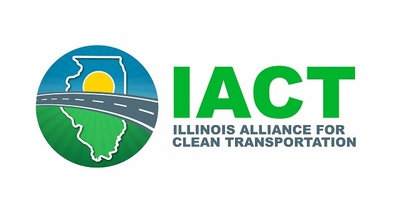Chicago Area Clean Cities Expands Statewide, Announces Name Change to Illinois Alliance for Clean Transportation Illinois Alliance for Clean Transportation (IACT)
The Chicago Area Clean Cities Coalition is now the Illinois Alliance for Clean Transportation (IACT). The name change and rebranding are part of the statewide designation process under the U.S. Department of Energy’s Clean Cities program.
“We are very pleased to announce our new name and rebranding as part of our move to become a statewide Clean Cities coalition,” states Illinois Alliance for Clean Transportation Chair John W. Walton. “We are expanding our Clean Cities’ educational efforts in a way that provides unbiased help to identify ways to reduce emissions and go green in the transportation sector. By naming ourselves IACT, we are hoping YOU will ACT to make a difference in reducing vehicle emissions and improving the environment.”
The coalition has been working with businesses and government fleets as well as auto dealers and the public for nearly 30 years to help them transition to sustainable transportation. Membership is comprised of federal, state and local governments; corporations; small businesses; and individuals. These stakeholders come together to share information and resources, educate the public, help craft public policy, and collaborate on projects that help to reduce transportation emissions and petroleum use.
IACT – headquartered in Chicago, with an office in Springfield, Illinois – is a 501(c)(3) nonprofit organization. The Chicago-based coalition was founded on May 13, 1994. It was the 5th Clean Cities coalition to launch under the U.S. DOE’s Clean Cities program. IACT is one of the DOE’s more than 75 Clean Cities coalitions.
Clean Cities organizations support the nation’s energy and economic security by building partnerships to advance affordable domestic transportation fuels, energy efficient mobility systems and other fuel-saving technologies and practices. The coalitions achieve this in several ways, including the advancement of alternative fuels, alternative fuel vehicles and sustainable vehicle technologies such as electric vehicles and their charging infrastructure. The efforts reduce the nation’s dependence on imported oil, improve air quality, support local jobs, drive economic development and promote improved quality of life.



